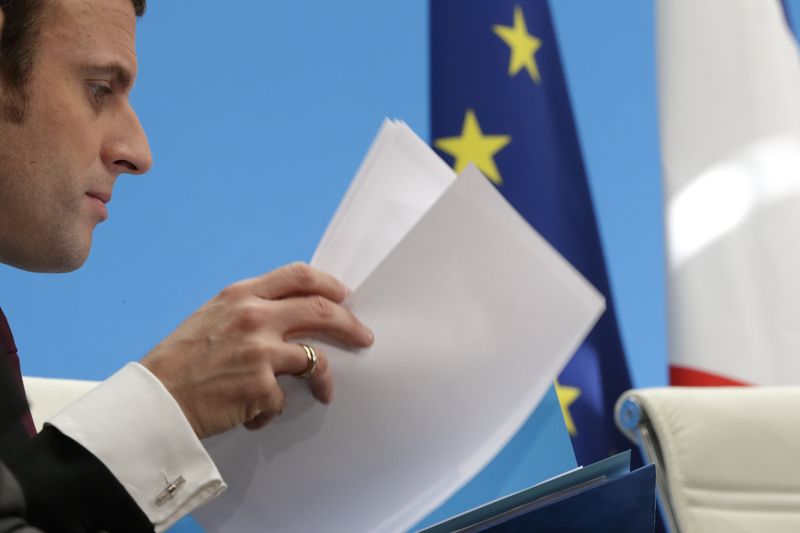PARIS (Reuters) - French President Emmanuel Macron's government can ill afford further tax cuts without spending cuts to finance them, and is in danger of missing already watered-down fiscal targets, the public audit office said on Tuesday.
Budget Minister Gerard Darmanin told broadcaster CNews the government still targeted a public sector deficit of about 2% of economic output next year after a temporary spike to 3.1% this year due to a change in corporate taxation.
He said the government had identified the 5 billion euros worth of savings needed to offset impending cuts to income tax. But in private, some officials acknowledge that the 2020 target is slipping out of reach. One government source said a deficit around 2.1-2.3% was more likely.
The audit office said the 2% target did not take into account all the concessions that Macron has made to 'yellow vest' protesters who for more than six months demonstrated against high taxes, dwindling purchasing power and his administration's perceived elitism.
Macron announced in December a package worth more than 10 billion euros ($11.4 billion) to boost the income of the poorest workers and of pensioners. He followed up in April with the plan to ease income tax from next year.
The audit office said it was unlikely that plans to finance the cut by closing tax loopholes could be enacted next year, which could add 0.3 percentage points to the deficit as a result.
"Further cuts in taxes cannot be made by easing up on the (deficit) reduction targets on account of high debt and deficits," the office said in its annual report.
"They must go hand in hand with an effort on spending to allow France to keep full control over its budgetary choices, especially in case of an economic slowdown or financial shock."
Beyond 2020, the audit office said the government's plans to reduce its deficit leaned heavily on budget savings that so far remain largely undetailed and therefore at risk of not happening.
In that light, the audit office said France would likely make little progress bringing down its national debt, which is close to 100% of gross domestic product.
